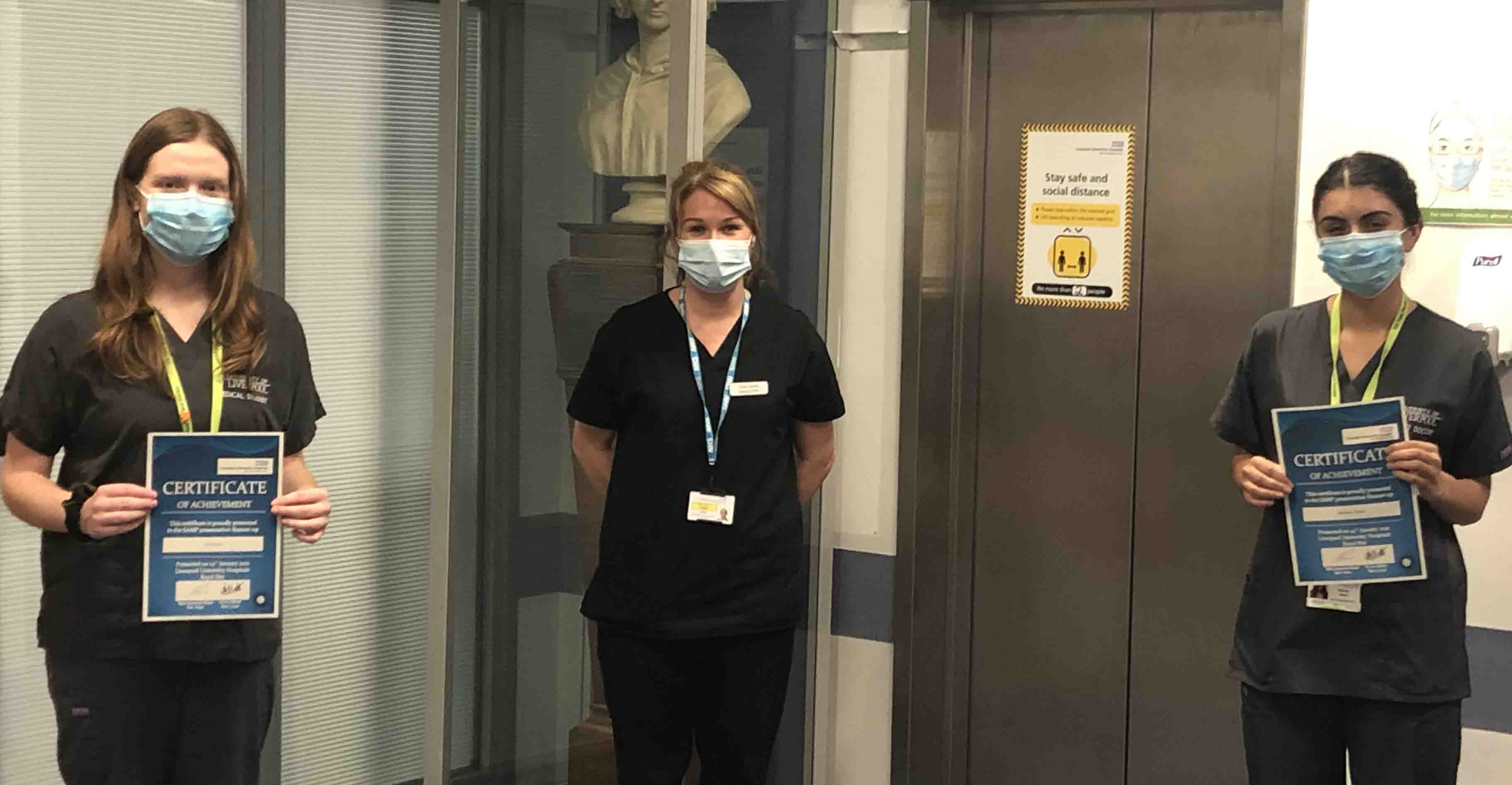
Student doctors Belinder Nahal and Ela Owen took home the runner-up undergraduate project prize at a presentation session facilitated by the Royal Liverpool University Hospital.
Here they tell us more about the study, entitled 'A review of authorship for HSV-2 research conducted in low and middle-income countries between 2000 and 2020', that snagged them the award.
What made you decide to focus your project on this particular topic?
“Both of us gained an interest in global public health research during our intercalation year where we completed a master’s degree at the Liverpool School of Tropical Medicine (Ela) and the London School of Hygiene and Tropical Medicine (Belinder).”
We both had a particular interest in sexual and reproductive health, so when we were assigned as research partners for our SAMP (Selective in Advanced Medical Practice) project under Dr Emily Clarke we were delighted to be able to work together.
“Dr Emily Clarke, Sexual Health and HIV Consultant at the Royal Liverpool University Hospital, is an expert in the field of genital herpes (HSV-2) and chairs a national herpes special interest group. For these reasons combined, we ended up conducting our research on genital herpes in low and middle-income countries.”
How did you collaborate with Axess and LSTM?
(Ela) “Dr Emily Clarke was assigned to be my co-supervisor for my master's dissertation at LSTM along with Dr Angela Obasi who is an acclaimed researcher in the area of genital herpes and adolescent health. I completed my dissertation on genital herpes and subsequently became extremely interested in the topic.”
“We identified further research work that could follow on from my dissertation and I decided to complete a student-led SAMP at Axess, which is the Royal Liverpool University Hospital Sexual Health clinic. Belinder was also completing her SAMP at the Axess clinic and, due to the large scope of the project we decided to work together to complete it.”
What did you learn from the project?
“The project highlighted the disparities in first and last authorship position between high-income countries (HICs) and low-middle-income countries (LMICs).”
Authorship position can affect the determination of hiring, promotion and the allocation of funding for future research. Therefore, if authors from LMIC’s are not being represented in these positions, their opportunities for career progression may be restricted.
“This calls into question and led us to reflect on why global health is not really global. It opened our eyes to the persisting effects of colonialism on global health and how colonial power imbalances may be influencing the allocation of funding and ultimately research opportunities. It is something that urgently needs to be addressed, otherwise the cycle of inequity will continue.”
Congratulations on the prize!
“Thank you! The Hospital organised a SAMP Prize Presentation Session where we were runners up for our project. It was an amazing opportunity to present to our peers, educational supervisors and year leads. We listened to eleven high quality presentations and were very surprised to be awarded a prize. We are very grateful to the education team at the Royal Liverpool University Hospital for organising the event and allowing us all to share our work and learn from each other.”
Dr Emily Clark took to Twitter to share her congratulations for the students’ achievements. Take a look at the abstract of the project (PDF).